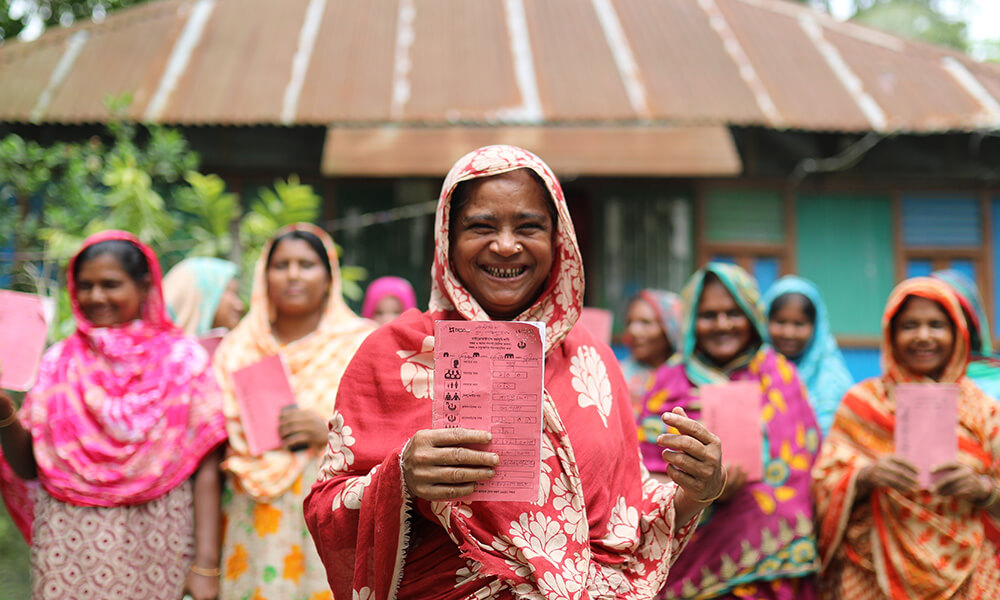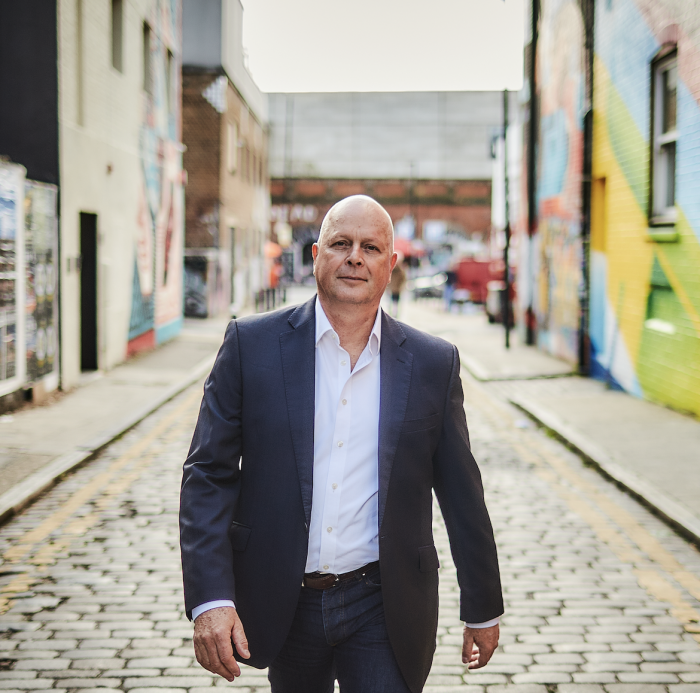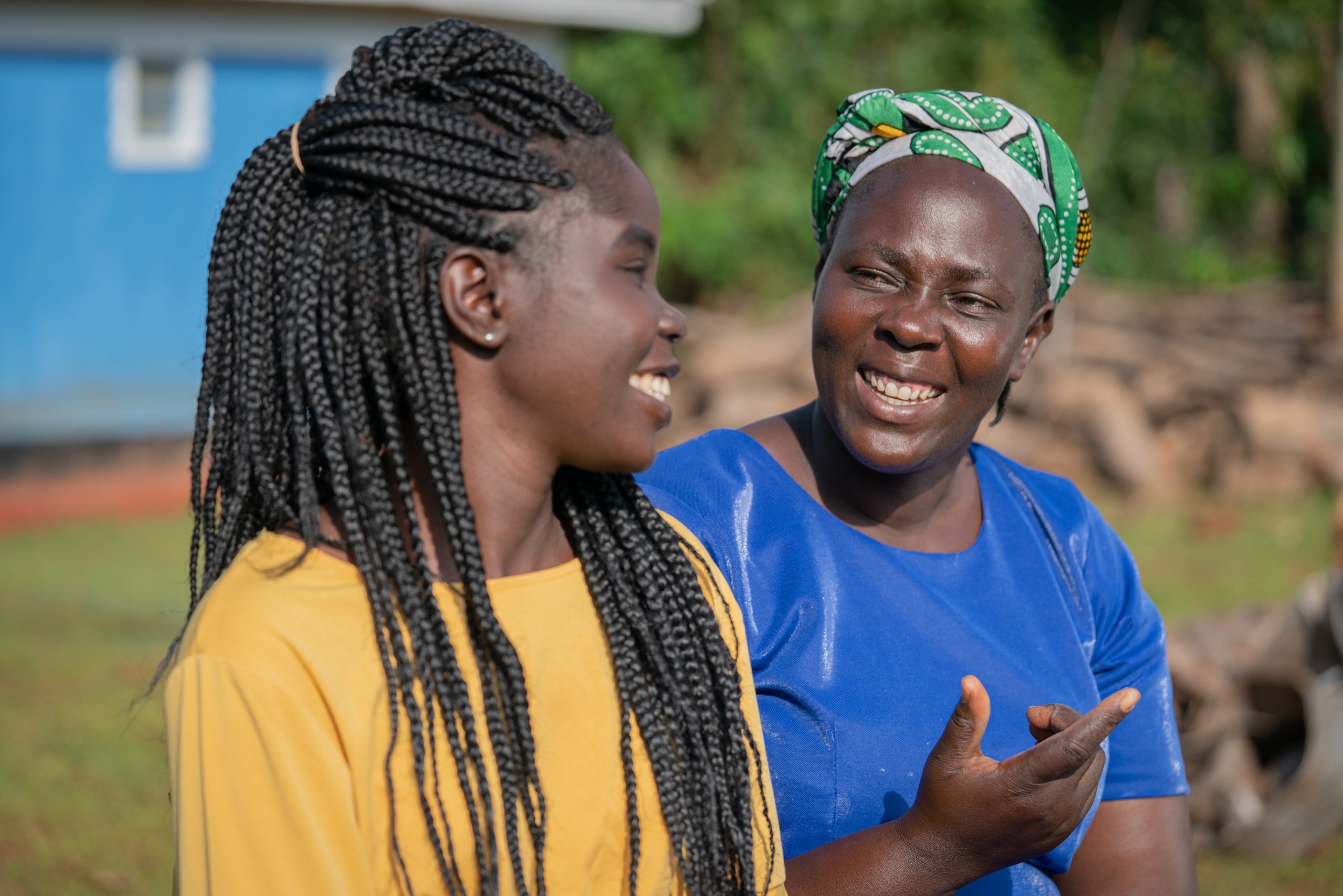

In Conversation With Tony Burdon, CEO of Make My Money Matter
60dB co-founder, Tom Adams, speaks with Tony Burdon, CEO of Make My Money Matter. Check out the transcript below and listen to the full recording.
Tom Adams:
Hello, my name is Tom Adams, one of the co-founders of 60 Decibels, and this is a short 10-minute interview with someone I admire and whose work I think is fantastic.
In this first interview, I’m going to be listening to Tony Burdon, the CEO of Make My Money Matter. Make My Money Matter is a people-powered campaign fighting for a world where we all know where our pension money goes, and where we can demand that it’s invested to build a better future.
So, Tony, you’ve had a really, really interesting journey and it’d be lovely to hear about how you got to your current position, and particularly, what has been the motivation for driving you towards the work you’re doing?
Tony Burdon:
Great. Thanks Tom. Well, it’s a pleasure to talk to you. I think I’ve just been incredibly lucky in my life. So my first job, when I left university, I went out to Malawi in Africa as a water engineer for the government of Malawi. My job was to take water from mountain streams and pipe it into villages. It had a huge impact on women and girls who carry water and it improved the health of those people in those villages. And it’s the first time I sort of sensed that I had an ability to help other people and I had skills that were helpful.
I think then for me, my journey has always been about how do I get scale of impact in terms of helping other people who are less fortunate than myself? So after that job, I worked for a consultancy, Atkins. I got really good professional skills. I did part of my chartership, but really I wanted to get back into development. I worked for Oxfam then for three or four years as a humanitarian engineer in war zones, refugee camps. I realized that I was just tackling the symptoms of these problems. So then I did a Masters, went back to Oxfam, and managed country programs. We lived in Uganda for four years.
Then I started working on global policy. So I was on the board of Jubilee, this big global debt relief campaign. And I, again, I wanted more scale of impact. So rather than lobbying Treasury, I went and joined Treasury, and became a civil servant working with Gordon Brown and leading on development issues within the Treasury. I loved it in the Treasury, and it meant you could work on G7 communiques rather than lobbying on them.
I tried a normal Treasury job, but it wasn’t for me. My passion has always been development. So I then went across to the Department for International Development and worked in Nepal, leading the economic work there, worked in Nigeria, where we met. I then I became a senior civil servant and led DFID’s economic work. And then it’s private sector department. And it’s there when I worked for four years leading that team, where I got very focused on how to mobilize more investments for impact in developing countries. And in the end, that’s why I’ve ended up in Make My Money Matter.
“We need to create more demand around how people’s money is used and invested so that we get this scale of impact aligned with the sustainable development goals that helps transform people’s lives for the better.”
So, that’s the journey, and I’ve sort of retained that sense of purpose and I’ve just had these brilliant jobs through my life. I’ve had great fortune really.
Tom Adams:
Tony, it’s a really amazing career that’s taken so much. We touched briefly on what you’re currently doing, which is being the chief executive of a new campaign called Make Your Money Matter…to do exactly that.
Could you talk a bit about why it’s so important to make your money matter and to think about more than just how much it earns you?
Tony Burdon:
Thanks, yeah, so I think there’s two things there. One, we’re starting this campaign, and we started on with a focus on pensions. All adults, if they’re in work, they have a pension. If they’ve retired they’re being supported by a pension. The thing is about this is, this is our money, and people don’t realize that. They pay into a pension. They don’t understand how it works. Most people don’t realize it’s invested, and none of them will really understand what impact their investments have.
We’ve got 3 trillion pounds in UK pensions and 40 trillion in pensions globally. It’s a huge amount of finance. And people need to understand what it’s doing because it is their money, and they need the ability to have influence over how it’s used.
I think this has huge potential. As people get to understand this, they’ll take more interest in it. In a survey I commissioned when I was in DFID, we found that 52% of people surveyed said they would save more if they knew their pension did good. So I think there’s a potential there where you can invest in your pension, you understand it’s impact, it’s aligned with your values. You could potentially save more. And then you have your charitable giving, but you also have an impact through your life, through your pension. And then it provides for you in your retirement.
I think that demand from people around their pensions will then put pressure on the industry to shift investment into doing no harm and integrating benefits and contributing to solutions to society’s great challenges.
Tom Adams:
So the opportunity is huge. And almost like, I imagine when you talk to people about it, it’s like people nod and kind of think, “Yeah.”
I mean it seems like such an important no-brainer to want to make your money do more and do good, not just through charity, not just through paying taxes, but also where you invest your pension or otherwise. So what makes it difficult? What’s stopping us from doing it?
Tony Burdon:
Well, part of it is that people don’t understand what their money’s doing. So what we need to do first is create that demand. People need really good information. They need to have voice. At the moment they have very limited influence around what their pension invests in.
We’re calling on pension funds to listen to their members and explain to their members where they’re investing, the impact it’s having, and how they’re aligning those investments with the views of members. We’re not saying members know how to invest. They’re not investment experts. But to explain that to them, and then provide them with better choices, more sustainable funds, that kind of thing.
So we need to create that demand. And what we’re seeing is people are making choices about who they buy from, whether it’s renewable energy from an energy provider, or whether it’s an organic product. People are making these choices all the time now. And we need to do that with our financial footprint as well.
A big barrier is that we don’t know the impact of businesses or investments, and that’s where you come in, Tom, and the sort of impact measurement ecosystem. We need information. So measuring, managing, reporting, on impact is going to mean ultimately that we’ll be able to develop consumer metrics on a business, on your pension fund.
I’d like to see an app on a phone where someone can look at their pension fund and they know where it’s invested, the impact it has aligned with the SDGs, and also an ability through their phone to make some choices around those investments, from climate and environment to the impact on workers. So I see impact measurement as a real lever for driving change, because then we’ll have information and more transparency.
The other big obstacle is the role of governments. So governments need to set policy direction and regulation, and we’ve seen that in Europe with the all of work on sustainable finance, the EU taxonomy. Some of this will help provide signals and drive change, but there’s a lot there to do. And of course, current politics isn’t really conducive to a lot of that change, but shouldn’t we have a requirement that all businesses commit to net zero, and we measure that? Shouldn’t we be measuring and reporting on the impact of all businesses when we’re looking at not just climate change, but biodiversity loss across the planet?
These are things for our times and they need to be acted on urgently. So, governments have a key role to play, but the leverage on business comes through demand from consumers, or at least a big chunk of it does. So that means giving people voice and making sure they have the information so they know who they can buy from. And so the investors know who they can invest in. And I think that way we’ll move to a more sustainable financial system that’s good for people and good for the planet.
Tom Adams:
Tony, thank you so much. Your work is so important in this. It’s a real pleasure to hear your thoughts on this. And we’ll be watching the work of Make My Money Matter really carefully.
Tony Burdon:
Great. Well, thanks very much, Tom. Good to be here.
